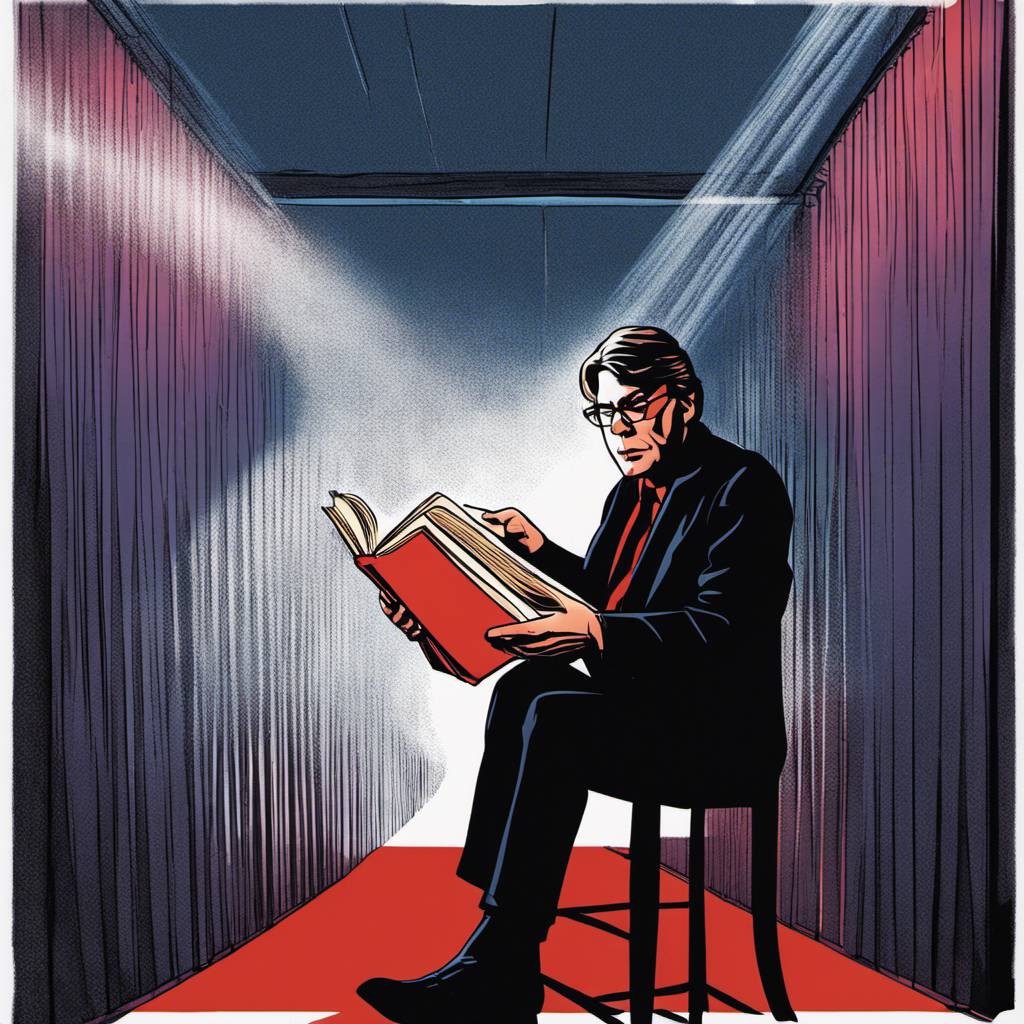
Stephen King, the prolific American horror and suspense writer, shows no signs of slowing down at 76 years old. With an impressive repertoire of nearly 70 novels and short story collections, King has once again surprised his readers with his latest horror-crime hybrid novel, “Holly”. With a hefty plot and intricate storyline, the novel demonstrates King’s undying energy and creativity.
“Holly” is a captivating blend of crime and horror genres that keeps the readers hooked, much like the titular character’s addiction to cigarettes as she dives into an investigation of a series of kidnappings in a midwestern town. One of the unique features of “Holly” is its subtle references to King’s earlier works, a treat for his long-time fans. The chilling experiences of the victims in the novel echo the harrowing ordeal of the protagonist in “Misery” (1987). A mention of blood-soaked high school prom queen brings to mind King’s debut novel, “Carrie” (1974).
However, “Holly” is not just a rehash of King’s past works. The novel showcases King’s ability to innovate and experiment with his storytelling. “Holly” challenges ageist stereotypes with its unusual villains – two elderly professors from Bell College of Arts and Sciences, a fictitious institution that seems to be situated in Ohio. Instead of indulging in typical retiree activities, Emily and Roddy Harris embark on a murderous rampage, remaining undetected due to societal biases against suspecting the elderly of such heinous crimes.
The protagonist, Holly Gibney, is a middle-aged private investigator who has appeared in King’s recent crime fiction works, including the Mr. Mercedes trilogy (2014-2016), The Outsider (2018), and the first novella of “If It Bleeds” (2020). In “Holly”, she takes center stage as she delves into the mystery of five missing individuals. Despite her recent loss and uncertain future, Gibney is relentless in her pursuit of the truth. She relies on her sharp intellect, proving that “Her wits are all she has.”
King’s mastery in storytelling is evident in the novel’s structure, with two timelines interwoven seamlessly. The first timeline, beginning on October 17, 2012, traces the murderous exploits of the Harris couple, while the second timeline, starting on July 22, 2021, follows Holly’s investigation. As the story unfolds, these timelines gradually merge, culminating in a heart-stopping moment when Holly comes face-to-face with the ruthless killers.
“Holly” also captures the zeitgeist of recent American history, referencing events such as the Black Lives Matter movement’s critique of racism in US policing and the Capitol assault in January 2021. King’s well-known criticism of Donald Trump is also subtly incorporated into the novel through Holly Gibney’s staunch anti-Republican stance.
The novel is further enriched by its commentary on the COVID-19 pandemic, joining the growing genre of pandemic fiction. Characters’ attitudes towards the virus serve as a moral compass in the novel. Those who reject vaccines or refuse to follow safety protocols are portrayed as morally deficient. In contrast, Holly Gibney is meticulous about observing pandemic protocols, embodying the qualities of a responsible citizen.
In a genre typically dominated by cynical and self-centered characters, Holly Gibney stands out as a compassionate and empathetic figure. King has successfully created a character who is not only an adept investigator but also a morally upright individual.
“Holly” is a testament to King’s enduring talent and creativity. It promises to engage long-time fans and attract new readers alike. With its intriguing plot and timely themes, it’s the perfect cozy murder mystery book to curl up with this fall.

